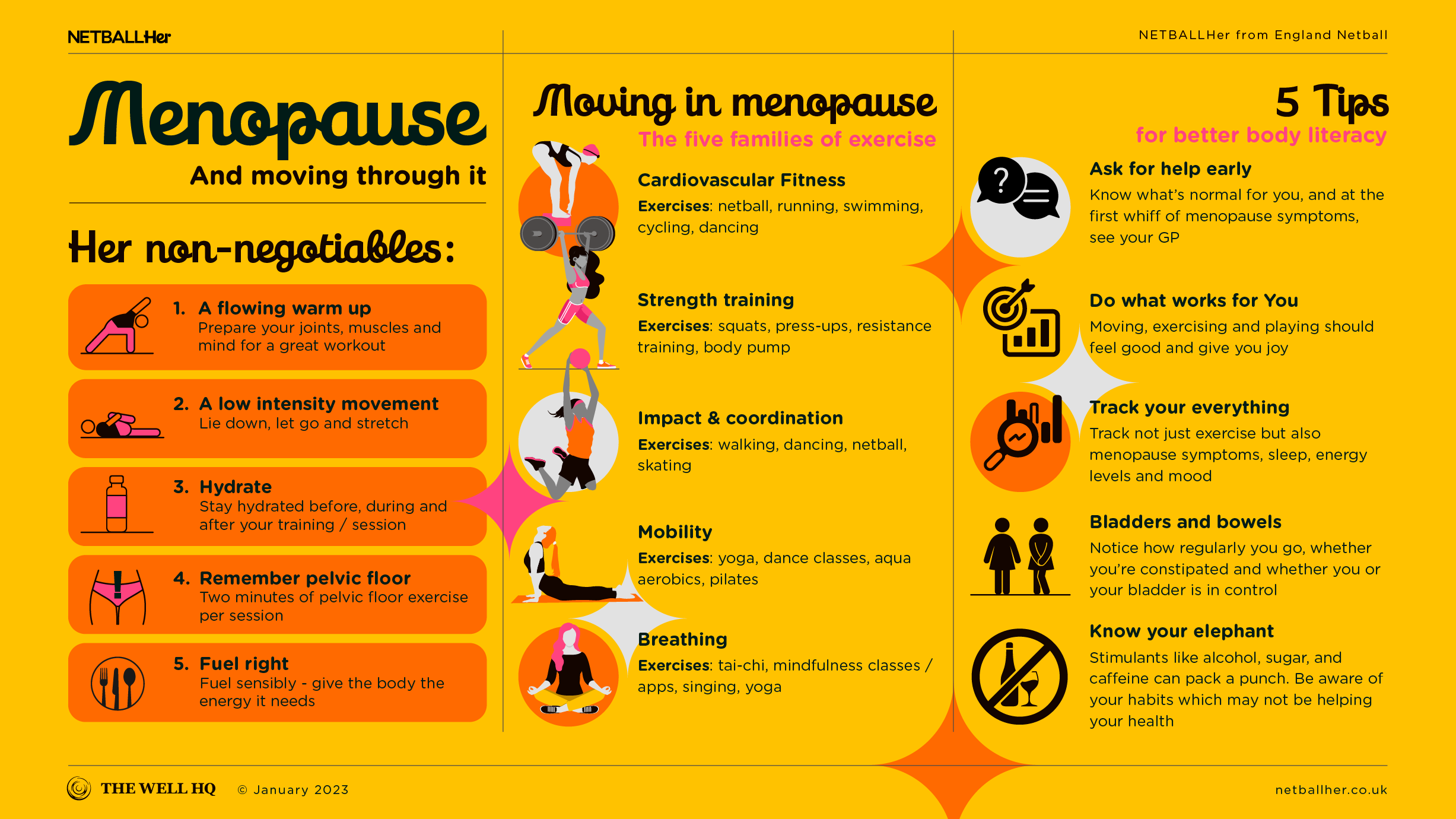Click play for an audio readthrough of this article
With this framework you can support midlife women so they can continue to participate in the sport they love. That’s important for her, for netball … for all of us.
1. Train who she is (not who she was)
As all good coaches know: you coach the person in front of you. If a fab ex-player rocks up to your club after a few years out, she needs to be returned to the court step-by-step. You can’t assume she’s got the same fitness, motivations, or skills she once had. So meet her where she is, and go at her pace.
2. Communication is key
Talk to your players and be realistic about where they’re at. If a stalwart player starts to struggle with the pace of the game then it’s time to talk. Find out if she’s still enjoying netball at this level. Does she want to dial back? Does she want to move down a level? Do what’s right for her.
3. Lower the injury bar
By the time a woman reaches midlife her body’s been through a lot. She’s much more likely to get injured now than a few years ago and small niggles can become big problems. So if she mentions any aches or pains in any part of her body (no matter if they seem trivial) you need to encourage action: recommend where to go, who to see, and actively support her as she seeks help.
4. Respect her real life
Most midlife women have a lot going on. It often takes real planning (and sacrifice) for them to make it to netball training and competition. The cost vs. benefit of netball has to continue making sense. If her being out of the house for four hours on a Saturday is causing tension at home, coaches and colleagues need to ensure those four hours are (and remain) brilliant and rewarding for her … because the alternative is obvious.
5. Build your understanding
You can’t assume that because she’s of a certain age she’s menopausal. And if she is, you also can’t assume she’ll want to talk about it. The key is being open if and when someone is ready to talk about it and / or confide in you. You can prepare by understanding the physical and emotional changes she’s going through.
6. Get to know nearby services
Menopause is more visible than ever before, so have a root around Google and / or the local area to find out the kinds of facilities you have nearby. From women’s health professionals to specialist food shops, support groups and retailers with an interest in menopause – get to know what’s out there so you can point her in the right direction.
7. Think kit
Some midlife women really want to go back to playing, coaching or umpiring netball. They really, really want to … but then there’s the dress or the white shorts. The dress can be a real dealbreaker – and not just for midlife women. The future of the kit is a worthwhile conversation to have as a team / club. If the aim is to ensure everyone feels included and comfortable (within the rules of our game) then maybe changes are overdue.
8. Buffer zones
Whether training or games, midlife women especially (but not exclusively) need to focus on the warm-up and the cool-down. Try to build in that extra time. Having all players arrive slightly early for a team warm-up and leave slightly later after a group cool down would be great for players, and perhaps even better for team spirit.
9. Toilet breaks
Weak bladders, leaking, sudden urges – these things can be part-and-parcel in midlife. Hence netballers (including coaches and umpires) may need time to go to the toilet before and sometimes during the action – so try to ensure plenty of generous breaks.
If plenty of breaks isn’t possible with the way your training and games are set up then there are two options: 1) work within the system as best you can or 2) maybe it’s time for a high-level conversation.
10. Tool up in nutrition
In midlife, nutrition moves from the very important category to the vitally important category. Skipping meals, eating-on-the-go, underfuelling, insufficient protein … sooner or later these things will show up in performance, in morale, in injury risk, in fatigue …
As coaches and colleagues we can re-enforce that food is energy. Food is essential for sharper reflexes, better co-ordination, greater relaxation, building resilience …
Why not take the whole team on a new nutrition journey – it won’t ever be a bad thing.
As a reminder, the content of the course belongs to The Well HQ. You have permission to access and use the content yourself or, if you are an organisation, for the number of users selected, but are not otherwise permitted to share such content with others, all in accordance with our Course Terms and Conditions.

